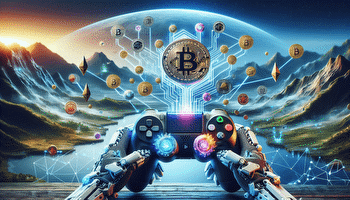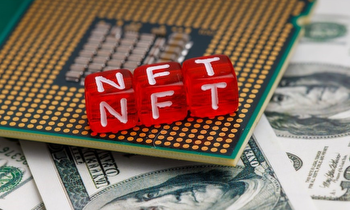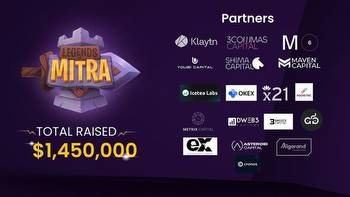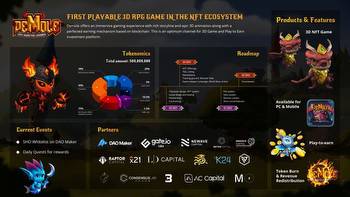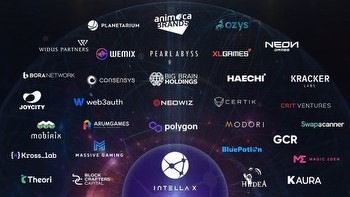The Future of Gaming Amid Tech Innovations and Advancement

The gaming industry, from video games to online casinos, has experienced exponential growth in recent years, surpassing the combined revenue of movies and sports. With the rapid advancement of technology, it is clear that this growth has just begun.
So what’s precisely ahead? What do these tech innovations – Virtual Reality (VR), Augmented Reality (AR), Blockchain, Cloud Computing and much more – mean for the industry?
Virtual and Augmented Reality (VR & AR)
For years VR has remained a niche category that the industry is yet to exploit its full potential. The bulky headsets, high prices, low game numbers and limited social interaction have been some barriers preventing widespread adoption.
Early adopters of VR technology have set the trail in online casinos, enabling players to indulge in more immersive games that blur the line between reality and imagination.
Augmented reality has gained significant traction in gaming, particularly with the success of games like Pokémon Go. Unlike virtual reality, AR enhances the real world by overlaying digital elements.
AR games offer unique opportunities for social interaction and exploration of physical locations. Designers are finding ways to complement reality rather than simulate it entirely. As AR technology evolves and companies like Meta, Snap, and Magic Leap invest in AR glasses, the gaming industry can expect further innovations in AR experiences.
Moving forward, though, as more companies continue to invest in VR development, there’s a promise for improved hardware, lower prices and enhanced social VR experiences. Game developers also work day and night to keep up with tech advancements.
The market is eagerly waiting for Apple Inc.’s June 5th event, when the company launches its AR/VR headset. There are rumours that the headset, just like the iPhone, will come in low-end and high-end models. We expect Apple’s second-generation model to be more affordable, opening VR to more users. Virtual reality could be the next growth frontier in the gaming industry.
Artificial Intelligence (AI)
Artificial intelligence has been integrated into gaming for decades, primarily through non-player characters (NPCs). Recent advancements have allowed for more sophisticated NPCs capable of complex decision-making. However, creating NPCs with complete autonomy poses challenges regarding game design and economic feasibility.
While AI is extensively in procedural content generation and level design, it has yet to replace human game developers entirely. The future may involve AI acting as a game master, directing the gaming experience for players while still collaborating with human designers.
In online casinos, AI plays a crucial role in enhancing online casinos’ understanding of player behaviour. So, online casinos can effectively track and analyse user preferences and patterns, games – like the online slots, that you probably like to play. This personalisation of the gaming environment increases player engagement, ultimately fostering increased player retention and frequent gameplay.
It has also vastly reduced failures occasioned by human error, providing a more sophisticated and efficient structure in areas such as communications, mirror players’ behaviours, and much more.
Cloud Computing
Now players worldwide stream games directly from remote servers onto their devices, reducing the dependence on local hardware. So, players directly own the player history as the new approach shifts the focus from physical ownership to digital content rental.
In the casino sector, cloud computing has enabled early adapters, particularly online gambling operators, to withstand problems associated with the loss from local storage problems, especially server-related failures. They are also much safer from issues emanating from hacker attacks or any other situation that could cause data loss.
Companies like Sony, Microsoft, and Nvidia have introduced their cloud gaming services, and even Amazon and Netflix have entered the cloud gaming market. With millions of users already engaging in cloud gaming, there’s no stopping now.
Blockchain Technology
Blockchain gaming is highly promising, with significant growth expected in the years to come, and that’s because of GameFi and DeFi. These terms describe “game finance” and decentralised finance (DeFi). In essence, the latter means the creation of gaming tokens or NFTs that players can use as in-game assets. They can trade these assets on cryptocurrency exchanges; hence gaming becomes a means to earn virtual assets.
GameFi is a revolutionary gaming concept that utilises blockchain technology to provide players with economic incentives and financial opportunities through play-to-earn blockchain games.
By earning cryptocurrency while playing and participating in activities within the gaming world, GameFi offers a stark contrast to the limited earning potential of the traditional gaming industry. Additionally, GameFi platforms may incorporate DeFi features like yield farming and staking to enhance the gaming experience’s financial aspect.
Blockchain-powered non-fungible tokens (NFTs) are pivotal in granting users more power and ownership over their virtual assets. They can enhance the safety and transparency of the gaming experience by verifying players and eliminating bad actors. Additionally, NFTs enable users to monetise virtual goods outside the game environment, fostering a more decentralised and fair gaming industry.
Mainstream adoption will increase as more businesses endorse blockchain technology; even traditional game developers will likely integrate it into their games.
Overcoming entry barriers for players and organisations will be a crucial challenge for blockchain gaming. However, emerging market players such as DeFi Kingdoms, 0xBattleGround, and CryptoBeasts are already embracing decentralised finance (DeFi) models, lowering entry barriers and encouraging greater participation in the gaming industry.
Blockchain technology in gaming is poised for further advancements, bringing innovative experiences. The industry expects sophisticated smart contracts, advanced tokens, and better integration with virtual reality. Interoperability between gaming platforms will enable seamless asset transfer and communication. Additionally, integrating blockchain gaming with DeFi will benefit from advanced features like staking and yield farming.
Web3 Technology
As you’ve learnt in the above section, there’s no denying that Web3 is rapidly replacing traditional gaming platforms, and it offers players an entirely new and decentralised gaming experience.
This new setup incorporates metaverse and blockchain technology and democratises the gaming sector by removing the need for central game administrators and platform owners. Integrating groundbreaking technologies like blockchain, DAOs (Decentralized Autonomous Organisations), and the metaverse empowers Web3 gaming to reshape the gaming experience and drive the industry’s financial aspect.
These innovative games enable players to actively participate and interact using cryptocurrencies and non-fungible tokens (NFTs). By doing so, Web3 gaming democratises every aspect of the gaming process, empowering players with control and authority instead of relying on a central governing body within a game.
In the Web3 gaming landscape, the gaming ecosystem shifts ownership of gaming assets and decision-making away from central authorities. Play-to-earn transforms the traditional pay-to-play model by offering asset trading, tradeable game tokens, and opportunities to earn cryptocurrencies while playing.
By embracing Web3 gaming, the digital gaming industry takes a significant step forward, paving the way for a transformative future.
The gaming industry has the potential to offer innovative and thrilling experiences within a sustainable environment. The industry is expectant with the promise held by Web3, blockchain gaming, VR/AR, cloud computing and AI. Whether it can replace the traditional gaming industry remains to be seen.








